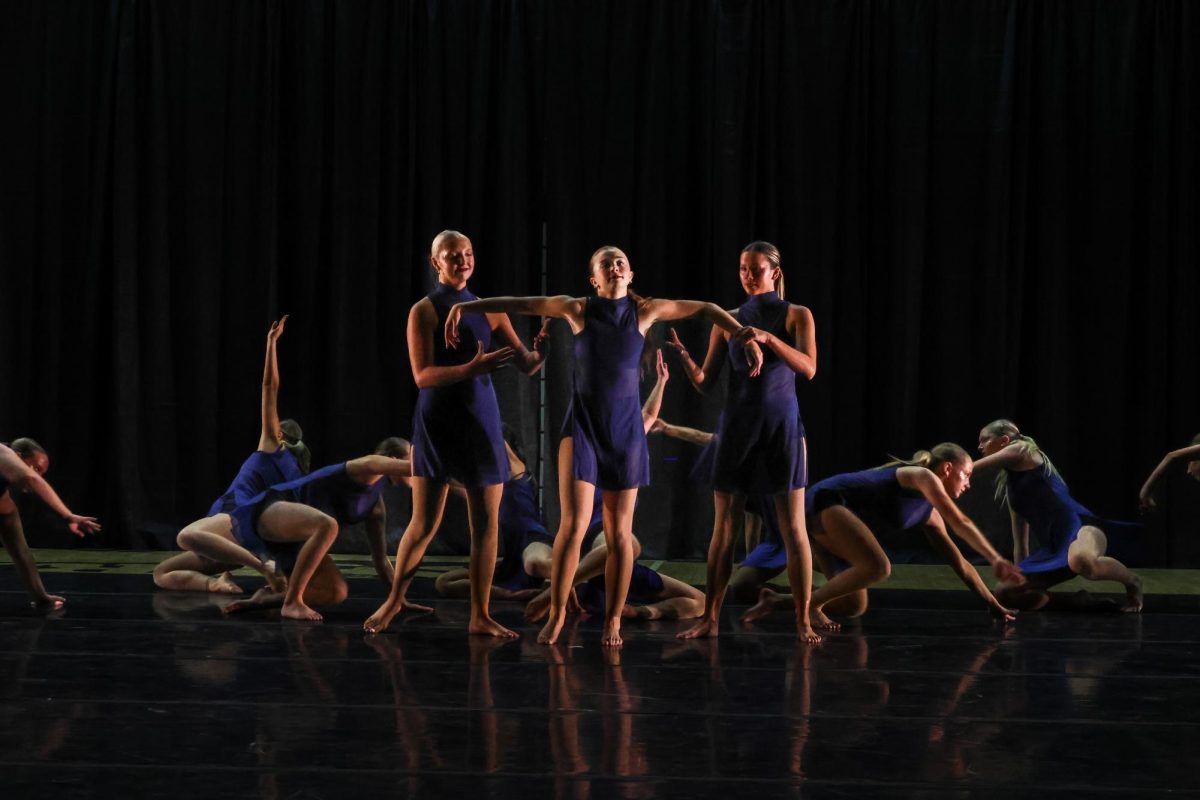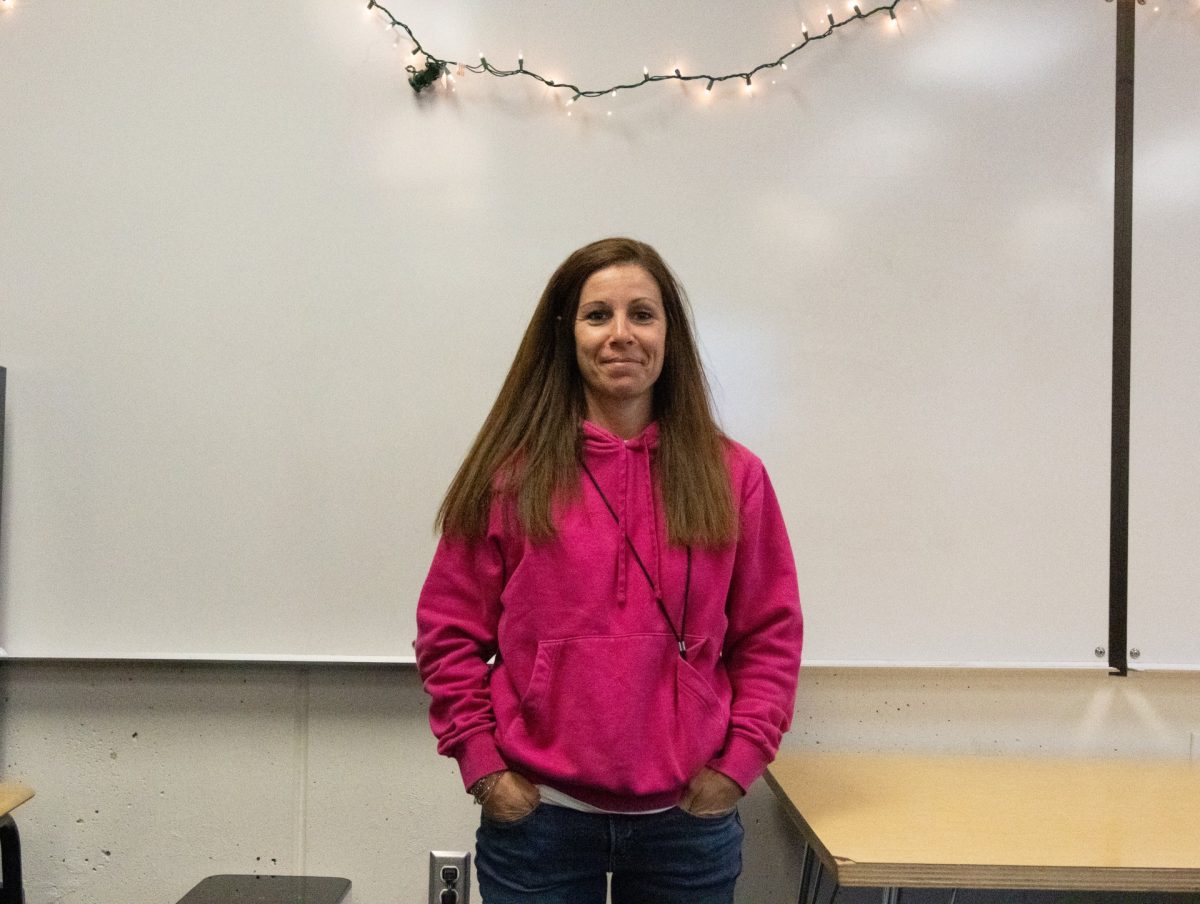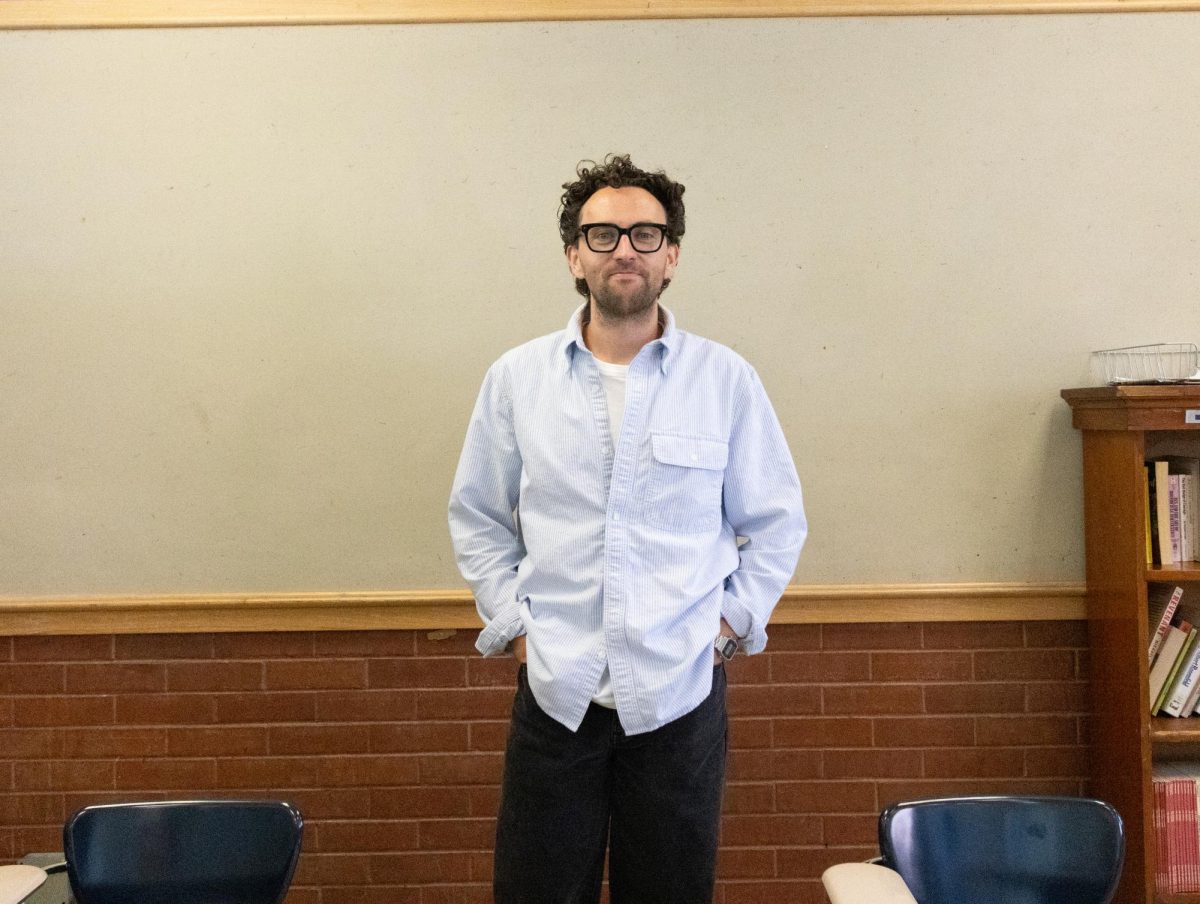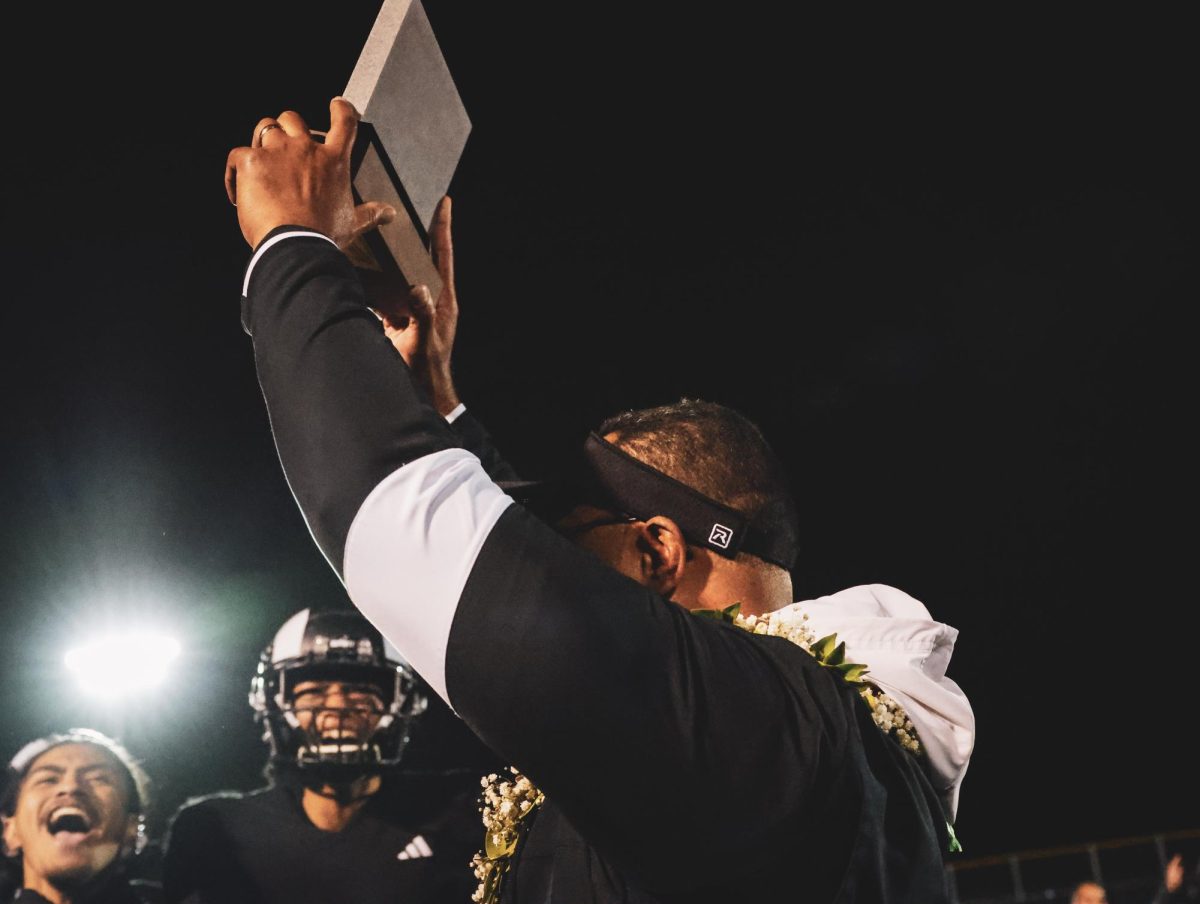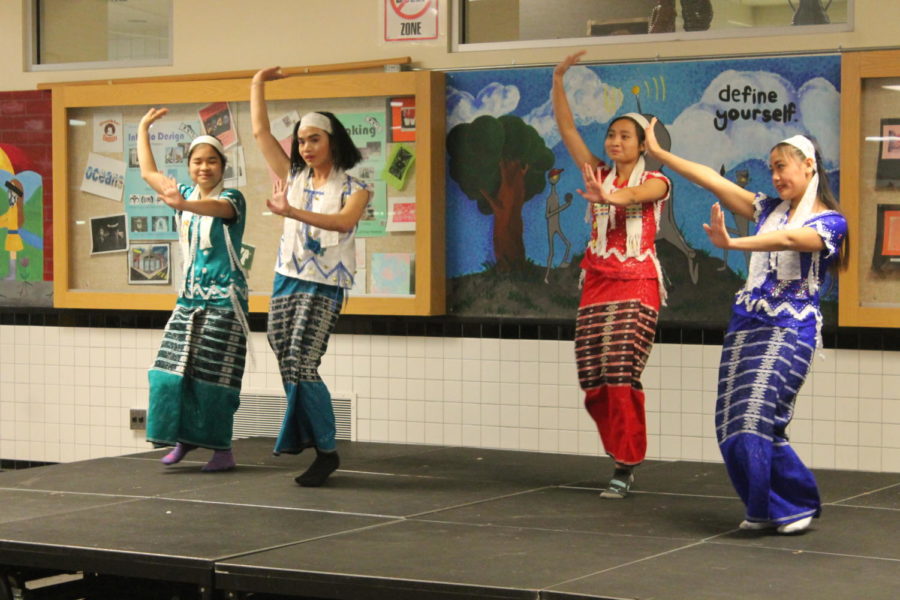Language Is A Huge Hurdle For Refugees
Students perform at the Highland culture night.
February 19, 2019
“Aye Google, qué significa esto?” This phrase, translated to English reads “Hey Google, what does this mean?” It was the constant question that junior Valeria Villarroel had to ask Google translate on her phone in order to finish her homework last year. She had just moved to the U.S. with her family from Mexico, and although she had visited the U.S. twice before, the transition was difficult.
“It was very hard because I did not know what my homework said sometimes,” Villarroel said. “I had to write down the words I did not know and then use my translator.”
Last year, Villarroel was put in a math class that was one level below where she should have been and an English Language Learner language class one level above the ideal. Her story is like many other ELL and refugee students that come here to the U.S. and have to learn to adapt. Putting students in the correct classes is often a big obstacle.
ELL student and family advocate Victoria Saley recounted a story about a former graduated ELL student who had been put in a grade two levels above what she should have been. She and her family had come to the U.S. from a refugee camp in Africa. She had no formal birth certificate that could confirm her age so refugee services had to guess how old she was. She was put in ninth grade when she should have been in seventh. It was not until her senior year that the issue was discovered and corrected with official documents. However, by then she had already successfully went through high school and had done just fine.
When students first come, in order to put them into classes and determine where they should be put, their transcripts from their previous schooling have to be sent to Highland. For refugee and ELL students this can be an issue. When transcripts are available, it has to be determined if a credit like general science can count for a Biology credit, for example. Sometimes it is determined that some aspects of their transcripts may not meet our school requirements.
Saley and Toronto also worked with a senior from last year who had emigrated from the Congo and needed to have her transcripts sent to track her progress for graduation. War and violence had plagued the nation and there was no way to get her transcripts from her previous school.
The student had arrived at Highland as a junior and when Highland was finally able to obtain a copy of her transcripts, her counselor saw that she was missing around six credits that were needed to graduate. She had to take night classes at Horizonte and do additional work in order to graduate on time. It was a huge endeavor, but she accomplished her goal and graduated with the class of 2018.
Some students go through the ELL program quickly, like Villarroel, while others struggle to advance from the program. There are the aspects of learning English, learning basic study skills, and how American schools work.
“Many of these kids have been in situations – either for health reasons sometimes or poverty reasons – that disrupted their whole school career,” Toronto said. “They may have gone to kindergarten or first and second grade and then the war came or just lots of other things that disrupted their whole step by step learning that we all take for granted. We say ‘twelve years oh gosh that’s too much’ and these kids wish that they could have had twelve years.”
The ELL program is set up so that when a student enters they take an English proficiency test which Toronto helps them prepare for. After that, it can be determined what classes they should be placed in. There are specific ELL classes like English and math, and levels within those classes that tailor to students’ needs. For example, in the beginning ELL English Learning class Toronto has to create sections on the white board for the different languages that her students speak so they can translate and learn. Yet, they still have to complete core classes like the sciences and higher math classes. Saley expressed how students can often feel like these are completely different languages that they have to learn as well as English.
Many students do not have a lot of exposure to English at home and so retaining what they learn becomes a problem. Often times, ELL and refugee students also do not have mentors at home to help them navigate school because their parents do not really know the system either. Many times responsibilities fall on the children to learn these things on their own because they have the most exposure to the language and culture.
“Their parents don’t understand the school system and processes and so getting their parents involved with parent teacher conferences and helping their parents understand PowerSchool and helping them know how to get their kids involved in school activities is important,” Saley said. “That is one thing that I try and help with as the ESL advocate. I’m trying to create opportunities for their parents to be more involved with their schooling just because I think once their parents can learn that, then that will help them do better at school as well.’
Other things that seem simple like excusing absences can be an issue for parents of ELL and refugee students when they do not know how it works. Saley is currently trying to help some of the refugee students become a part of Highland athletics like soccer. She is helping them understand how practices, games, and other aspects of high school sports work because they do not understand. Saley noted that often the help of students who have lived long term in the U.S. can be a great help and resource to these students with things like sports, and even dances or other customs.
In Villarroel’s situation, she had found a friend in her physics class and they traded numbers. The girl had told her to ask her for any help that Villarroel might have. They soon became very close and Villarroel’s English skills grew. Within one year she was proficient enough in English that she was able to graduate from the program.
“I was really happy to graduate because most people spend more than one year in the ESL program and I think that if you study and if you try to make friends that don’t speak your language and listen to [English] music along with other stuff you learn faster,” Villarroel said.
In order to help support their families, some refugee students have to work and managing that can be hard. Balancing school with learning English and a job can be overwhelming especially if you are new to the culture.
“I think one of the biggest focuses should be their English skills and then also helping them with job skills. We’d love to get them into internships to help them be prepared to work just like American students who are born and raised here,” Saley said.
Villarroel is a case where she was able to pick up the language quickly and that helped her in all her other classes. Yet, for a lot of refugee and ELL students, learning English and adapting to their new lives is a daily struggle they have to overcome.
